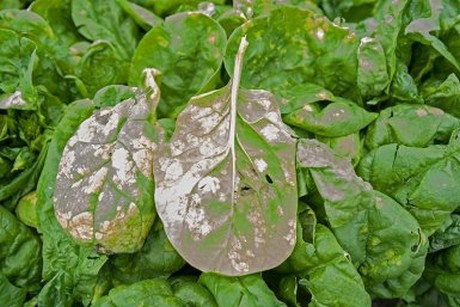Utrecht plant scientists and bioinformaticians will receive almost 1 million euros for a research project on downy mildew, the most important pathogen of spinach. They are awarded by the Top Sector Horticulture & Starting Materials for a public-private partnership. The Top Consortium for Knowledge and Innovation announced this on 1 November. In the project, Guido van den Ackerveken, Ronnie de Jonge and Michael Seidl will collaborate with four seed companies.
The Netherlands is market leader in the breeding of new spinach varieties and the export of seeds all over the world. The cultivation of spinach is at great risk because of constantly developing downy mildew isolates that are rapidly breaking through the newly introduced resistances.

“In this project, we will map the genome of downy mildew isolates in order to gain insight into how resistances are broken and how the pathogen suppresses spinach immune responses. This will allow new resistances to be detected and introduced into new breeds in order to resist emerging mildew isolates”, explains lead applicant Guido van den Ackerveken. Resistant varieties make an important contribution to food security and the reduction of chemical pesticides.
The project is expected to start at the beginning of 2020.
Source: Utrecht University
